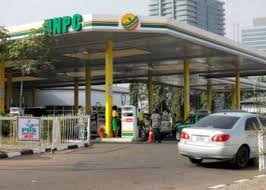The disappearance of long queues, yesterday at most NNPC filing stations, such as the one along the Asaba expressway and those of major marketers like Rainoil have been attributed to the latest hike in the price of petrol which saw virtually all the filling stations selling at near the N1, 000 mark.
Hence, many motorists now buy the product anywhere they could find it, rather than waiting to buy it at cheaper prices at NNPC and major dealers.
As motorists fumed over the recent price hike, there were subdued sales in many of the filling stations in Asaba. A source said it was a wait-and-see approach as they were weighing passengers’ likely reaction to transport fare increases, but added that this is inevitable if the Federal Government fails to heed calls for drastic reduction in the price of petrol.
Meanwhile, transport fares remained the same in Asaba metropolis as at yesterday. But it was feared that any hike in transport fares could be by over 50 per cent in major cities.
The newest price hike implemented by the Nigerian National Petroleum Company’s (NNPCL) retail management, ranged from N855 to N897 per litre, depending on the location, from the previous N568-N617.
Independent marketers, including many filling stations in Asaba and parts of Delta State have adjusted their prices to between N930 and N1,200 per litre of petrol. The price hike has had a widespread impact, with some Nigerians resorting to long-distance trekking and others missing work due to higher transportation costs.
The Manufacturers Association of Nigeria (MAN) has said that the new price of petrol might push inflation figures higher, impacting household budgets. It also said Small and Medium-scale Enterprises (SMEs), which had often operated at thin margins, could be forced to close shop entirely.
MAN in a statement by its Director-General, Segun Ajayi-Kadir yesterday, enumerated the impacts of the petrol price hike. He said “in terms of what the impact might be and judging from what we have witnessed in the past, the cost of transportation may increase and so would the prices of goods and services. As the cost of petrol rises, consumers will spend more on transportation and energy, leaving them with less disposable income.”
“This decrease in purchasing power may lead to reduced demand for non-essential goods and services, affecting businesses across various sectors.
These are pointers to the high possibility of a rise in inflation figures, impacting household budgets”, he said.


